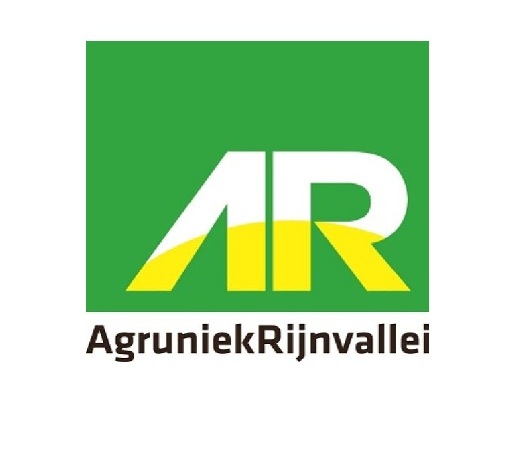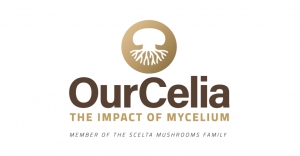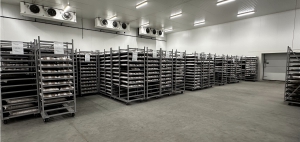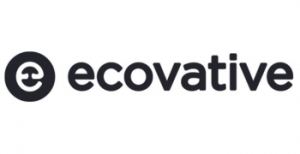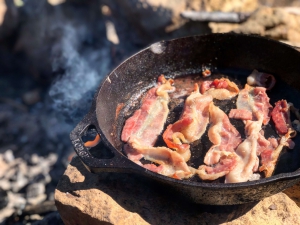Ecovative, a pioneer in mycelium-based technologies for sustainable food and materials, today announced the sale of its Netherlands-based subsidiary, Ecovative Spawn & Substrate BV, to the Klerken family, founders of Scelta Mushrooms.
Under the Klerken family’s ownership, the business will be renamed OurCelia, marking a new chapter in its support of the mushroom industry and introducing new solutions to mushroom farmers globally. This transition reflects a marriage of strengths: Ecovative’s leadership in mycelium innovation, stretching two decades, and the Klerken family’s deep roots in the global mushroom industry, dating back to 1963. Together, the two organizations will maintain a close, long-term relationship to advance the supply of world-class spawn products to both mushroom and mycelium producers. Ecovative previously acquired Lambert Spawn Netherlands in 2022 from its U.S. parent company, Lambert Spawn, founded in 1919 and recognized as the world’s oldest spawn producer. With this foundation, the Dutch spawn activities are now continuing under the Klerken family as OurCelia.
“Ecovative is proud to have grown the global supply chain for Agaricus and AirMycelium spawn from the Netherlands, and we are confident that under the Klerken family’s stewardship, OurCelia will thrive as a dedicated supplier to mushroom growers and mycelium producers worldwide,” said Eben Bayer Co-founder and CEO, Ecovative. “This step allows Ecovative to sharpen its focus on scaling AirMycelium production across our food and materials businesses in the United States, while ensuring the Dutch spawn business continues to serve the industry with excellence.” “The mushroom industry has been at the heart of our family for generations,” said Jan Klerken Sr., founder of Scelta Mushrooms. “With OurCelia, we are building on that heritage by expanding our business to include spawn and substrate production. This is a natural continuation of our commitment to advancing mushroom cultivation and supporting growers for decades to come.” In addition, Ies Hooglugt will continue in his role as managing director, ensuring continuity and trusted leadership for employees, customers, and partners of the company
Looking Ahead with OurCelia
For the Klerken family, OurCelia is more than a new company — it is a bold step to shape the future of the mushroom industry. With deep roots that stretch back generations, the family has always believed in the power of mushrooms to nourish people and transform industries. OurCelia will build on that legacy by reimagining spawn and substrate production for a new era, delivering cutting-edge solutions that help mushroom farmers grow stronger businesses, diversify their crops, and expand into new markets. By combining tradition with forward-looking innovation, the Klerken family aims to make OurCelia a global leader in advancing fungi as a cornerstone of sustainable food, agriculture, and materials for decades to come.
About OurCelia
OurCelia is a Dutch producer of high-quality mushroom spawn and substrates, rooted in decades of expertise within the global mushroom industry. Founded in 2025 following the acquisition of Ecovative Spawn & Substrate BV by the Klerken family, also founders of Scelta Mushrooms, the company builds on a long heritage of innovation and entrepreneurship in mushroom cultivation. By combining tradition with cutting-edge technologies, OurCelia supports growers worldwide with reliable, sustainable solutions that strengthen their businesses and open new opportunities for the future.
A few years ago, we visited the spawn facility in Venlo - back then still operating under the name Lambert Spawn. Much has changed since. Time for a renewed introduction. We spoke with Ies Hooglugt, site manager of the Venlo location, about technology, collaboration and Ecovative’s ambitions.
The moment you walk into Ecovative’s production site in Venlo, it’s clear: serious work is being done here to produce top-quality spawn. Since the American company Ecovative took over around 2.5 years ago, a lot has changed and improved.
“We’ve truly matured as an organization,” says Ies Hooglugt. “The technology, the processes, and the people have all grown significantly.”
Spawn as core business
The Venlo factory is a well-known name in the spawn industry, formerly operating under the Lambert Spawn brand. Today, about 90% of production is focused on mushroom spawn and 10% on so-called “non-mushroom” applications, such as leather alternatives and mycelium-based packaging.
“That market is still in development. Promising, but young,” says Hooglugt. “Our core business remains the production of mushroom spawn.”
Within that 90%, the split is approximately 80% Agaricus and 20% exotics. “A valuable addition. We see great potential there, and the results are promising.”
From grain to custom solutions
One of Ecovative Venlo’s distinguishing features lies in the substrate used for growing spawn. While many suppliers use standard grain and straw, Venlo decided to look further.
“We used to work exclusively with millet, but that’s not suitable for every mushroom species,” explains Hooglugt. In collaboration with Belgian partner Mycelia - known for its extensive knowledge of exotics - new carriers were developed: Blend and Speed Spawn.
“We tailor the substrate to the mushroom, not the other way around. This results in faster and more efficient colonization of the substrate.”
Strategic partnership with Mycelia
The collaboration with Mycelia is strategic and goes far beyond just substrate or inoculum.
“For exotics, we work together at the highest level,” Hooglugt explains. “Mycelia brings decades of experience and deep knowledge of exotic species, and we contribute our production expertise. It’s a close collaboration - from strain selection to final spawn production.
For Agaricus, we now produce our own inoculum in-house, but for exotics we consciously build on Mycelia’s strength.”
According to Hooglugt, the triangle is solid: the American parent company provides scientific power, Mycelia brings practical expertise, and Venlo contributes production knowledge.
“All of these elements complement each other perfectly.”
Quality first
The acquisition by Ecovative has raised the bar. Internal processes have been tightened, and quality systems optimized.
“The advanced and unique system we use to make spawn is fairly complex. It requires well-trained people,” says Hooglugt. “Fortunately, we have a strong and stable team here, with hardly any turnover. That’s quite exceptional in this sector.”
He likes to compare it to Formula 1: “You can have the best car, but without a skilled driver, you won’t win the race. And vice versa. Here, everything lines up — people, technology and processes.”
Testing and research
Ecovative leaves nothing to chance, as shown by its close cooperation with research institutes. Spawn is tested at Inagro in Belgium, and the company works with Wageningen University & Research (WUR).
“WUR recently developed 16 sporeless oyster mushroom strains,” says Hooglugt. “These are freely available to the market, with the exception of the Purati, which is an exclusive release by Mycelia. And we’re producing the spawn.”
Growth ambitions
Although exports are going well, there’s still room to grow in the Dutch market.
“We’d like to expand domestically,” says Hooglugt. At the same time, he sees the market evolving. “There’s consolidation happening, growers are scaling up, and so are suppliers. That’s exactly why having alternatives is becoming more important.
We notice growers are making more conscious decisions.”
A great example is an Italian Pholiota grower who felt too dependent on his regular supplier.
“He actively sought a solid alternative, and we succeeded together,” Hooglugt shares. “We developed a new solution collaboratively. That’s what we stand for: flexibility, customisation and quality. It gives growers more control over their own process.”
After our visit to Venlo, one thing is clear. Ecovative stands strong, both literally and figuratively. The team knows what it stands for, operations are tightly managed, and the vision is clear. Most of all, the door is open for growers who want to move forward.
Team Mushroom Matter
Ecovative and Limbraco Join Forces to Transform Mushroom Farming with Cutting-Edge Technology
- The collaboration opens doors to emerging markets in mycelium-based products, offering farmers new avenues for business expansion.
- Comprehensive training and support will be provided to farmers, ensuring seamless integration of this technology into their operations.
GREEN ISLAND, N.Y., December 6th, 2023 — Today marks a significant milestone as Ecovative, the frontrunner in mycelium-based materials, and Limbraco International BV, a leading manufacturer in mushroom agricultural machinery, proudly announce a strategic alliance to manufacture specialized farming equipment for the production of Ecovative’s flagship AirMycelium™ crops. This collaboration is focused on developing state-of-the-art filling and harvesting equipment, aimed at introducing new, high-value mycelium crops to the mushroom farming industry and accelerating the growth of the mycelium materials sector.
"We are excited about this partnership with Ecovative," says Frank Cornelissen of Limbraco International BV. "It represents a fusion of cutting-edge technology and new markets, aimed at empowering mushroom farmers with the tools they need for success in an emerging and competitive industry."
Ecovative’s technology unlocks a new mushroom mycelium crop for use in fashion materials and animal-free meats. The technology is designed to integrate directly with existing mushroom farms, allowing mushroom growers a quick addition of high value, fast growing product lines to their facilities.
To bring the burgeoning mycelium-based industry to market at scale, Limbraco's machinery includes custom-designed equipment that ensures consistently high yields and quality material when paired with Ecovative’s patented growing process. A successful pilot with Whitecrest Mushrooms, a large commercial mushroom farm in Ontario Canada, demonstrated the viability of this approach, and the farm will be dedicating half of its mushroom production capacity to the new AirMycelium technology in 2024.
“Limbraco's sophisticated and reliable equipment is essential for meeting the unique requirements of Ecovative’s mycelium crop, AirMycelium.” said Gavin McIntyre, Chief Commercial Officer at Ecovative, “This strategic alliance is a significant step towards scaling up the production of new high-value mycelium crops for mushroom farmers, which hold immense potential for food and fashion."
The announcement comes after a year of close collaboration between Ecovative and Limbraco. Access to Ecovative and Limbraco's mycelium production machinery will be exclusive to Ecovative’s mushroom farm network. To enquire about opportunities or become a contract grower visit ecovative.com.
About Ecovative:
Ecovative is a biological science and design company, advancing mycelium technology to transform industries with high quality, Earth-friendly materials. Founded in 2007, Ecovative makes mycelium materials and products commercially competitive and accessible to everyone. Leveraging its Mycelium Foundry, dedicated production capacity and a range of industry leading partners, Ecovative grows better materials for everyday needs. To learn more, visit ecovative.com.
About Limbraco:
For over 50 years Limbraco has been active in the mechanization, automation and delivery of complete systems in the entire mushroom growing sector. With in-house knowledge and technology, Limbraco is able to offer turnkey projects, both in the Netherlands and around the world. This means the engineering, construction, machine technology and climate control systems required for a mushroom farm in its entirety. All specific components are manufactured in-house, for example, picking lorries, conveyors, special doors, climate units, control cabinets, et cetera.
Media Contact:
Lacey Davidson — This email address is being protected from spambots. You need JavaScript enabled to view it.
Media Kit
GREEN ISLAND, N.Y.--(BUSINESS WIRE)--Ecovative announced today that it is opening access to a major European patent to all individuals and businesses who wish to use its MycoComposite™ mycelium materials in their own innovations and businesses in Europe. The company’s renewable material offers a nontoxic, planet-friendly alternative to plastics and other fossil fuel-derived materials.
Ecovative’s MycoComposite invention enables the manufacturing of products that are free of forever chemicals and other toxic substances like formaldehyde. This patent outlines a strategic blueprint for the creation of eco-friendly and renewable mushroom mycelium composites, offering a promising solution to curtail CO2 emissions across diverse industries and combat the escalating climate crisis.
"The goal of Ecovative has always been to provide the 'picks and shovels' for a new generation of businesses realizing the potential of mycelium technology," says Ecovative co-founder and CEO Eben Bayer. "The growing demand for environmentally beneficial products and processes is creating immense new opportunities not to reinvent the wheel, but to change what the wheel is made of, and we're excited to see the new discoveries and scalable solutions made with this versatile technology, for the benefit of Spaceship Earth."
The European Open Patent Program for MycoComposite is intended to encourage innovation in plastic-free products. The patent is already in use around the world in protective packaging, construction materials, architecture and innovative applications to replace petrochemical use. Several successful businesses have already been launched using MycoComposite, notably Loop Biotech which makes a popular line of mycelium coffins and urns.
"Loop Biotech has seen firsthand the huge demand for innovative, planet-friendly solutions enabled by mycelium materials," said Bob Hendrikx, founder of Loop Biotech, which uses MycoComposite material to produce sustainable coffins and urns. "I started this company to help humanity leave a positive footprint on the Earth, which is only possible when we collaborate with living organisms like fungi."
A sharp rise of interest in Europe for entrepreneurial applications of MycoComposite make it an ideal environment to test the potential of open access patents to spur an increase in innovations and businesses around mycelium technology. MycoComposite licensing and partnership opportunities will continue to be available outside of Europe supported by Ecovative’s state-of-the-art spawn and substrate facilities. The company owns numerous patents and patent applications related to mycelium manufacturing and product development globally.
For the complete article, click here
Source Ecovative
How ideas foundry Ecovative transforms mushrooms into everyday materials (including bacon).
There are few things that Eben Bayer hasn’t tried to make out of mushrooms. Over the past decade, the CEO of incubator Ecovative, which develops commercial applications for mushroom materials, has made packaging, textiles, insulation, and furniture out of fungus. This fall, through spinout Atlast Food, Bayer is launching an even more ambitious product: mushroom bacon—the first, he hopes, of a whole new category of mushroom meat alternatives.
Bayer sees mushrooms as an untapped resource for a number of industries. Researchers can easily extract cells of a specimen and grow them in bulk quickly, affordably, and in specific shapes. Ecovative’s early work focused on using mushroom cells in composite materials, growing mycelium with wood chips or hemp stock to create replacements for Styrofoam and building insulation. This material has been produced for Dell, Steelcase, and others to be used in packaging. The company has also developed a vegan mushroom leather licensed by Bolt Threads and used in a partnership with Stella McCartney.
Atlast is founded on the idea that mushrooms, particularly varietals such as chicken of the woods and oyster mushrooms, have a similar cellular structure to meat and can be cultivated to mimic bacon, steaks, chicken breasts, and other whole cuts (as opposed to Impossible Foods’ and Beyond Meat’s ground meat options). “Mycelium forms these beautiful, micron-level structures, with extreme precision, in 3D,” Bayer says. “So I think about, Where do you need really complex structures?” Atlast is planning to launch its own mushroom bacon brand this fall, before supplying other companies with the ingredient.
Source: Fast Company
For the complete article and author credits click here




